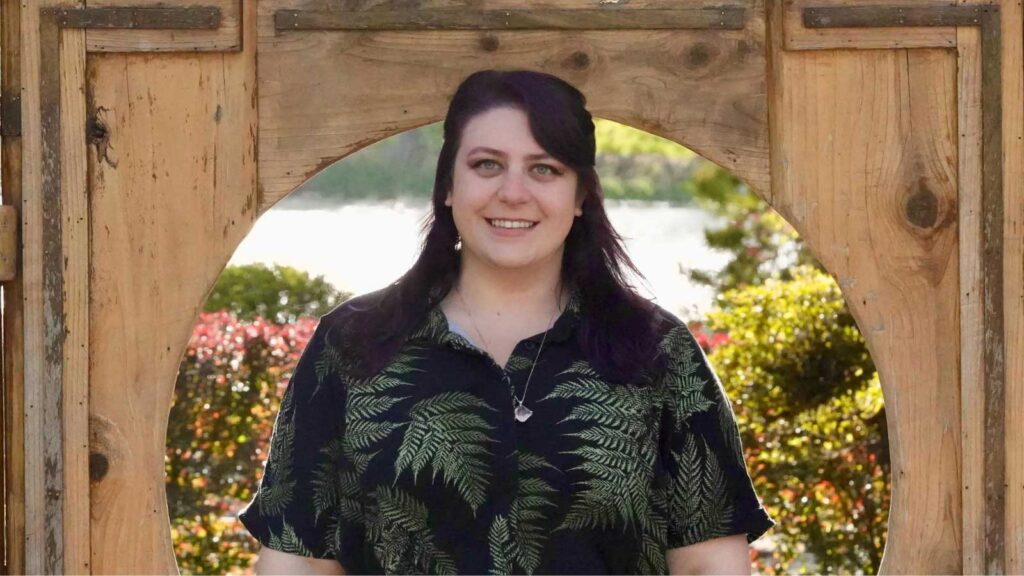NUNM doctoral student explores effectiveness of app-based meditation for healing from anxiety to traumatic brain injuries.

With the National University of Natural Medicine (NUNM) gearing up to host Research Week from April 29 to May 3, we’re shining a spotlight on the work of our researchers.
Patricia Filbin
Programs: Doctor of Naturopathic Medicine; Master of Science in Clinical Research; 2026
Hometown: Longview, Washington
What are your research interests?
My research interests are centered around the application of naturopathic medicine and holistic approaches to manage mental and neurological disorders, such as anxiety, traumatic brain injuries (TBI), and neurodegenerative diseases. Naturopathic medicine involves various therapies like herbal medicine, nutrition, and lifestyle counseling, which I believe can empower individuals to take an active role in their treatment, thus enhancing their autonomy over their health and healing processes. I am particularly interested in how these integrative therapies can be applied to improve patient outcomes in both mental and neurological health.
How are you putting your research interests into practice?
In line with my research interests, I am currently engaged in a study exploring the feasibility of a meditation app aimed at reducing anxiety levels among adults. This study evaluates multiple aspects of feasibility such as acceptability, demand, and implementation, alongside the app’s impact on anxiety symptoms and overall mental well-being. Through a longitudinal intervention design, we’re assessing the effectiveness of app-based meditation in managing anxiety, with a focus on accessibility, privacy, and the potential for integrating digital interventions into standard therapeutic practices. Additionally, I have had the opportunity to work under Dr. Joshua Goldenberg, ND, focusing on systematic reviews at the intersection of naturopathic medicine and neurotrauma. One of our key projects includes conducting a systematic review of the prevalence of convergence insufficiency—a vision disorder—following brain injury. This work is part of the Neurotrauma Evidence Synthesis Training (NEST), a collaboration between the Canadian College of Naturopathic Medicine (CCNM) and NUNM. Through this training, I have worked closely with research librarians and acquired a unique skill set that includes creating and translating complex database queries for systematic reviews. This specialized knowledge is instrumental in ensuring the accuracy and comprehensiveness of our research data. My involvement in these projects not only enhances my expertise in evidence-based medicine but also contributes to the development of guidelines that could potentially reshape practices in treating neurological disorders post-injury.
Why is NUNM a good place to do research?
NUNM provides an excellent environment for conducting research, particularly due to its supportive community and the unique opportunities it presents for interdisciplinary collaboration. The university’s Helfgott Research Institute and its proximity to Oregon Health & Science University (OHSU) expand the network of potential research mentors and opportunities available to students. NUNM encourages a degree of autonomy and student leadership in research that is unique, allowing students to lead projects that are both meaningful and aligned with our research interests. This autonomy not only enhances our learning experience but also deepens our understanding of the entire research process. Additionally, the collaborative projects undertaken here, often lead to significant impacts that extend beyond the academic community, influencing broader medical practices and policies. This atmosphere, paired with the resources and collaborative opportunities, makes NUNM an ideal place for building a solid research foundation from which to launch a post-graduate career.